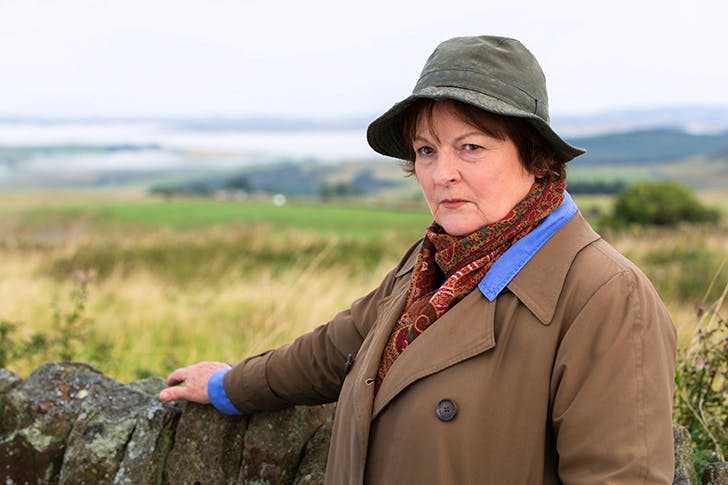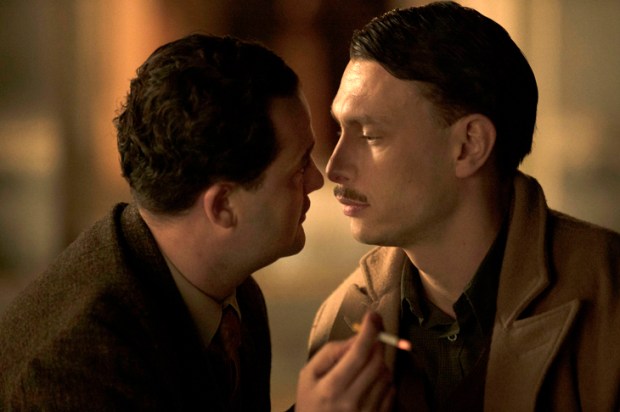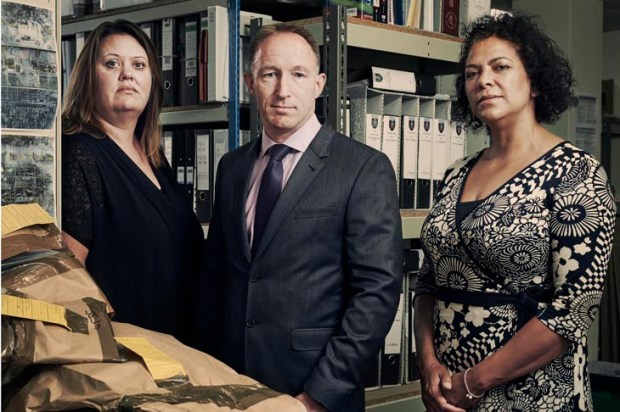As we know from all those newspaper articles and actress interviews, there’s a scandalous lack of high-profile British TV dramas starring women over 40. Indeed, if it wasn’t for No Offence, Unforgotten, Silent Witness, Last Tango in Halifax, The Fall, NW, Agatha Raisin, Broadchurch, Happy Valley and Apple Tree Yard, there’d really only be Vera, which returned to ITV on Sunday.
The Vera in question is DCI Vera Stanhope, who, in the teeth of fierce competition, may well be the most implausible cop on television — even if she does fit snugly into a thriving sub-genre featuring sharp but kindly policewomen whose male colleagues spend much of the time shaking their heads in disbelieving admiration. Playing her with understated relish is Brenda Blethyn, who’s required to put on a Northumbrian accent, a wide selection of shabby clothes and the kind of hat not often seen on TV since the glory days of Siegfried Farnon in All Creatures Great and Small.
As for the programme itself, its chief characteristic is probably efficiency. On the one hand, it’s hard to imagine many people tuning in with a sense of feverish excitement. On the other, anybody who does happen to watch is unlikely to be left feeling cheated.
Take Sunday’s episode, which unfolded like a more leisurely, more psychologically thoughtful and considerably greyer version of Death in Paradise. A young woman was found murdered on Ternstone Island, a local bird sanctuary optimistically nicknamed ‘the Galapagos of the North’. Yet, who could possibly have killed her, seeing as she was apparently alone on the island at the time?
Undeterred, Vera travelled the photogenic countryside, leaving all the gloomy brooding to the Northumbrian skies, as she gently questioned the woman’s friends and colleagues, taking care to call each of them either ‘love’ or ‘pet’. Before long, she’d duly established that this was a classic whodunnit in which every suspect had a dark secret — only one of which was having committed the murder. But the solution, it turned out, was rather a good one: unexpected, just about believable enough and with an undertow of genuine sadness. In short — and the makers are welcome to use this in their publicity — there are worse ways of passing a Sunday night in front of the telly than Vera. (Exhibit A: SS-GB.)
But if you want to see how murder works in real life — i.e. a lot more messily — this week also saw the first episode of American Justice (BBC2, Tuesday), a documentary that manages to make us realise all over again how foreign America can seem.
The programme began with a series of captions reminding us that the United States is the only country in the world where the enforcers of law and order are elected by the people. And in Jacksonville, Florida, it appears, the people don’t tend to bleeding-heart liberalism. The city’s state attorney is Angela Corey, a death-penalty enthusiast and a woman who’s made it possible for defendants to be tried for murder even if they haven’t killed anybody.
So it was that one of the two cases we followed concerned Trey Wright, who with his cousin Bryant had broken into a student’s room carrying an automatic rifle. Unfortunately, a neighbouring student called Jabarta heard the noise and came into the room with a gun of his own. He then killed Bryant and left Trey badly injured. Because he was obviously acting in self-defence, Jabarta faced no charges. Instead it was Trey who was put on trial for Bryant’s murder.
The other case was no more edifying. A man and his niece were found knifed to death in his trailer, with suspicion immediately falling on her boyfriend TJ who’d not so mysteriously disappeared. Soon afterwards, the police tracked him down to a town in Georgia, where he made a full confession, explaining that he was sick of his girlfriend stealing all the money he earned so she could spend it on crack — which was especially galling given that he’d planned to spend it on heroin for himself. ‘I’ve never done anything like this before,’ he added reassuringly. ‘Burglaries and dealing drugs, yes.’ Despite the fact that, as one cop pointed out, TJ had stabbed the uncle to death very quickly ‘because he liked him’, the state decided to call for the death penalty rather than merely life in prison with no possibility of parole.
More surprisingly, meanwhile, after a decidedly gripping piece of courtroom drama, Trey got off. He and Bryant had, it transpired, known the two students and had gone to the room as arranged to sell them the weapon in exchange for weed. It was a moral vindication triumphant enough to earn Trey a standing ovation from the entire congregation when he returned to his local church.
Got something to add? Join the discussion and comment below.
Get 10 issues for just $10
Subscribe to The Spectator Australia today for the next 10 magazine issues, plus full online access, for just $10.
You might disagree with half of it, but you’ll enjoy reading all of it. Try your first month for free, then just $2 a week for the remainder of your first year.














Comments
Don't miss out
Join the conversation with other Spectator Australia readers. Subscribe to leave a comment.
SUBSCRIBEAlready a subscriber? Log in